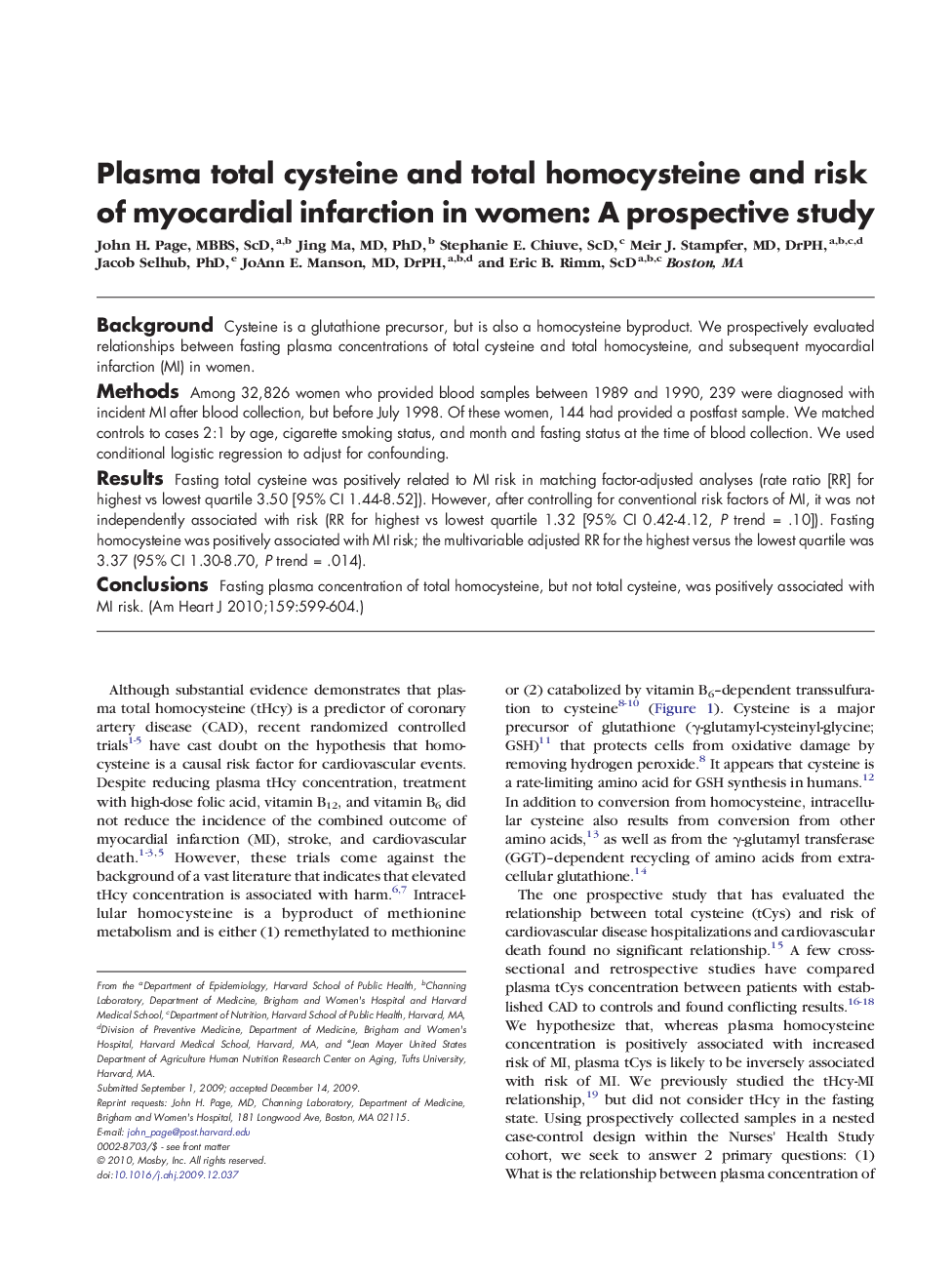| Article ID | Journal | Published Year | Pages | File Type |
|---|---|---|---|---|
| 2851137 | American Heart Journal | 2010 | 6 Pages |
BackgroundCysteine is a glutathione precursor, but is also a homocysteine byproduct. We prospectively evaluated relationships between fasting plasma concentrations of total cysteine and total homocysteine, and subsequent myocardial infarction (MI) in women.MethodsAmong 32,826 women who provided blood samples between 1989 and 1990, 239 were diagnosed with incident MI after blood collection, but before July 1998. Of these women, 144 had provided a postfast sample. We matched controls to cases 2:1 by age, cigarette smoking status, and month and fasting status at the time of blood collection. We used conditional logistic regression to adjust for confounding.ResultsFasting total cysteine was positively related to MI risk in matching factor-adjusted analyses (rate ratio [RR] for highest vs lowest quartile 3.50 [95% CI 1.44-8.52]). However, after controlling for conventional risk factors of MI, it was not independently associated with risk (RR for highest vs lowest quartile 1.32 [95% CI 0.42-4.12, P trend = .10]). Fasting homocysteine was positively associated with MI risk; the multivariable adjusted RR for the highest versus the lowest quartile was 3.37 (95% CI 1.30-8.70, P trend = .014).ConclusionsFasting plasma concentration of total homocysteine, but not total cysteine, was positively associated with MI risk.
